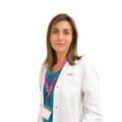If you have undergone in vitro fertilisation (IVF), either ICSI or conventional IVF, the word oestradiol will ring a bell. This is because, together with other hormones, it plays an important role in achieving a successful pregnancy. In both ovarian stimulation and endometrial preparation its values are closely monitored to adjust treatments and prepare the woman's body for the arrival of pregnancy.
Oestrogens in the body have many functions from giving sexual characteristics, preparing the uterus for implantation and even regulating serotonin and stimulating good mood.
Focusing on pregnancy, it contributes to improving circulation in the uterine vessels, preparing the endometrium for implantation, preventing miscarriage and premature birth, among others. In other words, it creates a favourable environment for pregnancy and childbirth.
During pregnancy in the 1st trimester, oestrogen levels are usually between 200 and 6,500, depending on each woman (since oestrogen is not only produced in the ovary but also in the adrenal and adipose cells by a process called peripheral aromatisation). These values increase as the pregnancy progresses, as the placenta is a major producer of oestrogen that serves to sustain and bring the entire pregnancy to a successful conclusion, generating changes in the body that are inherent to pregnancy.
Having said this, we can conclude that the gynaecologist will know how to interpret the optimum level in each situation and will supplement the oestrogen deficiency with the appropriate medication for each woman and the type of treatment she has undergone.
